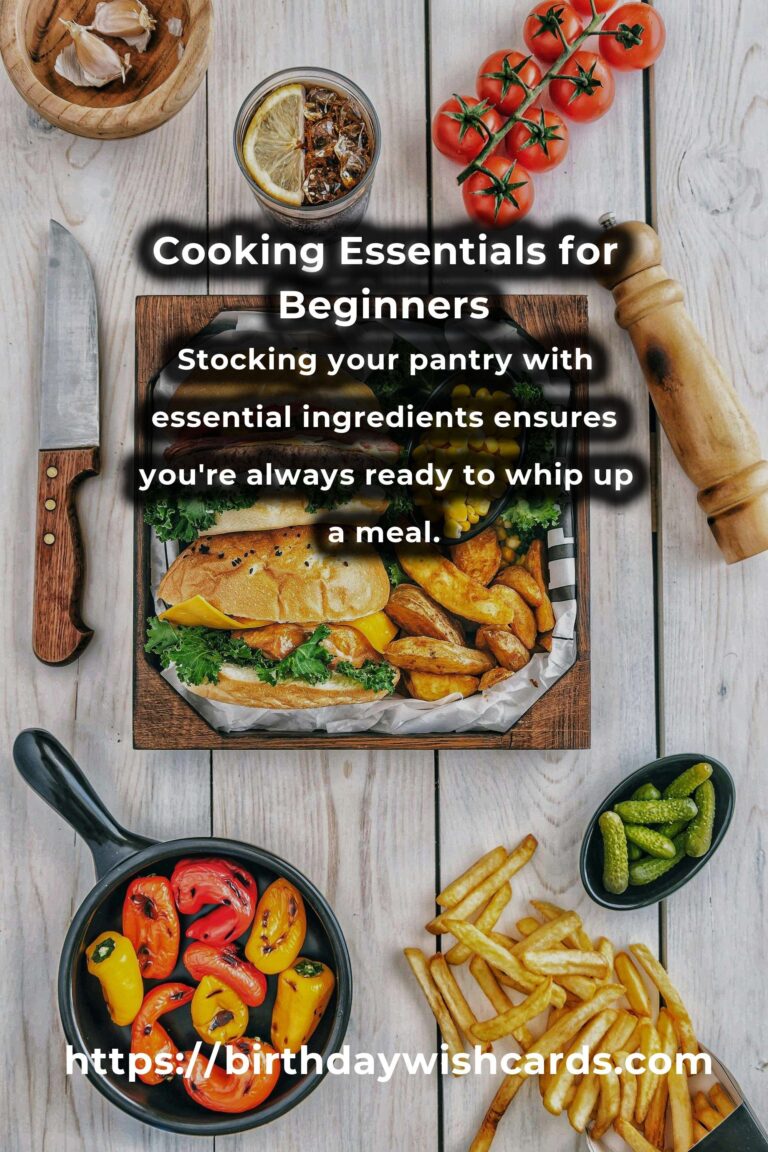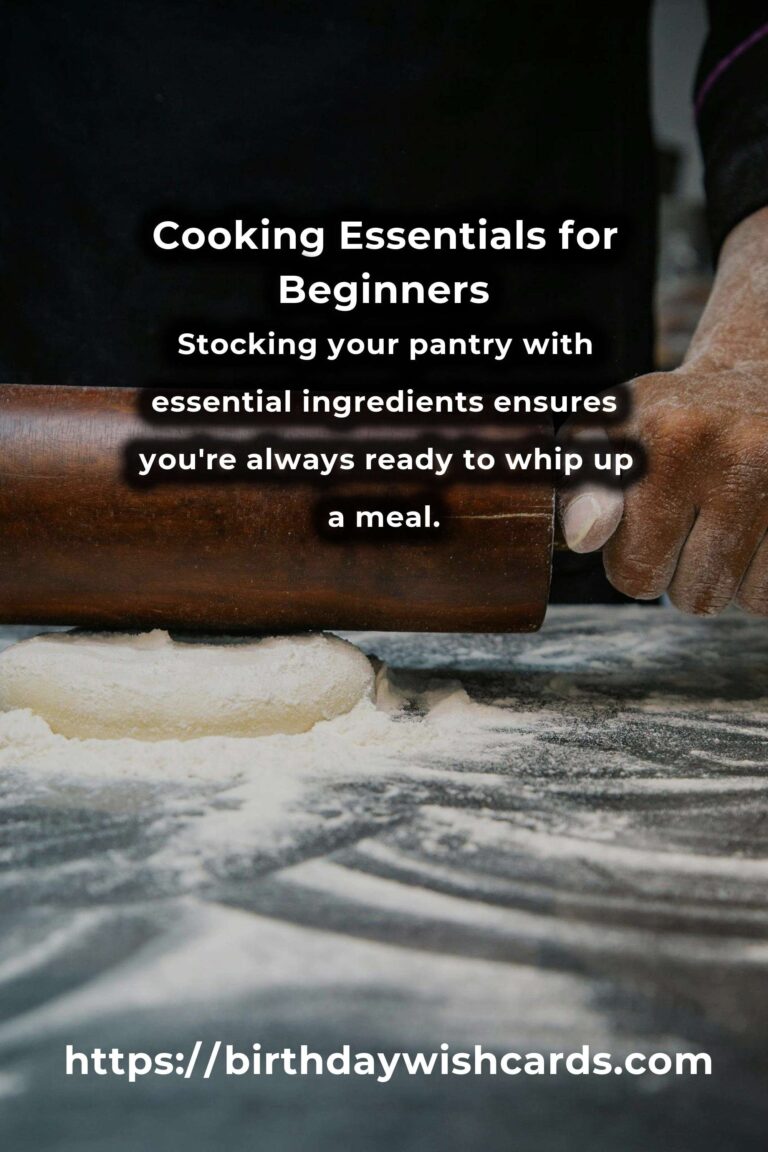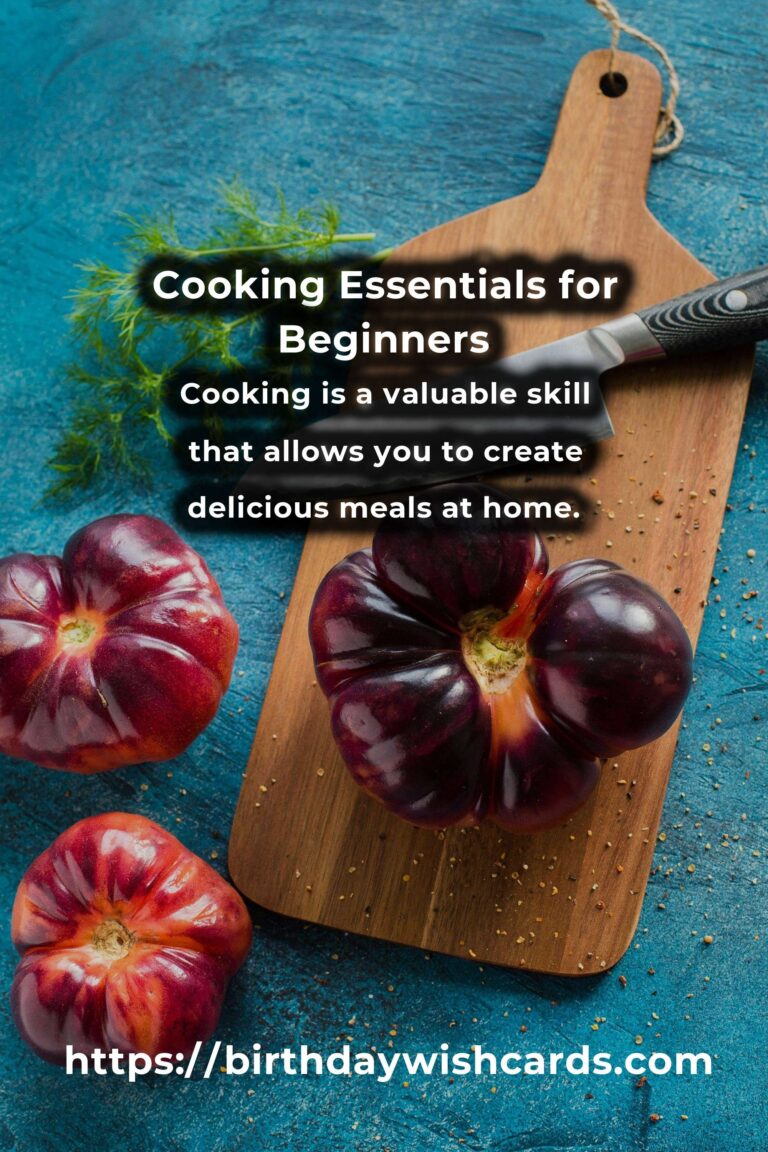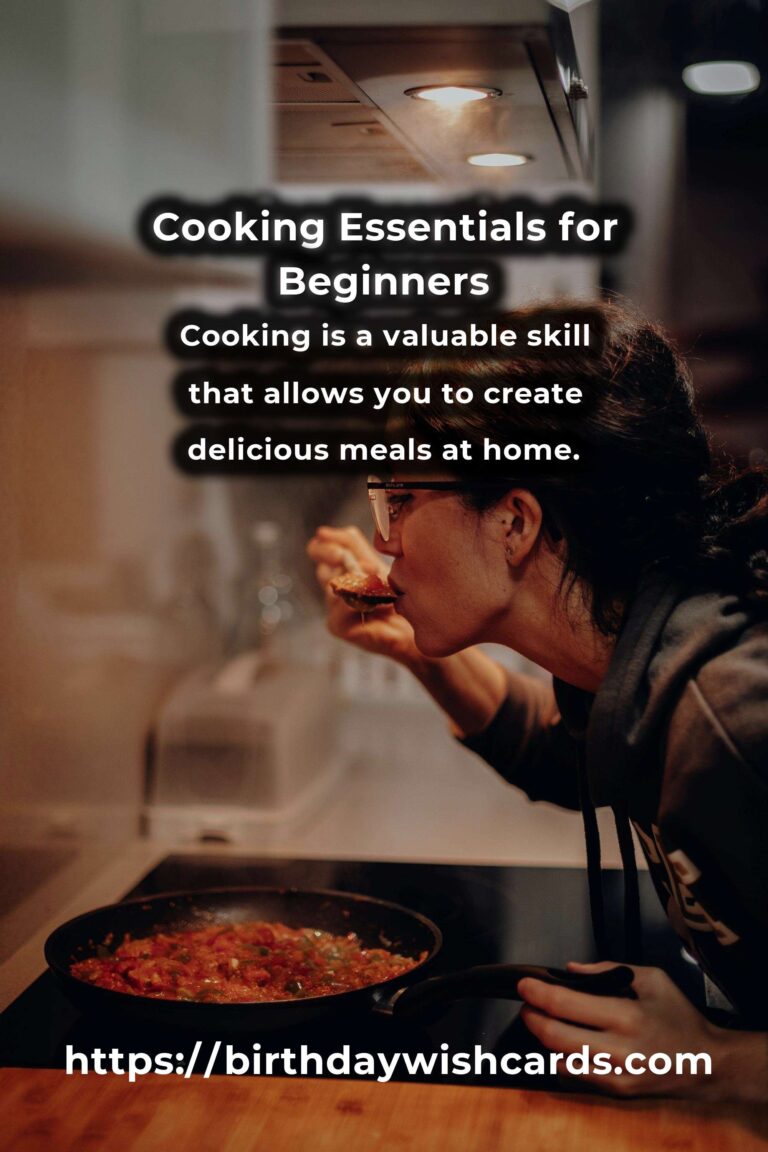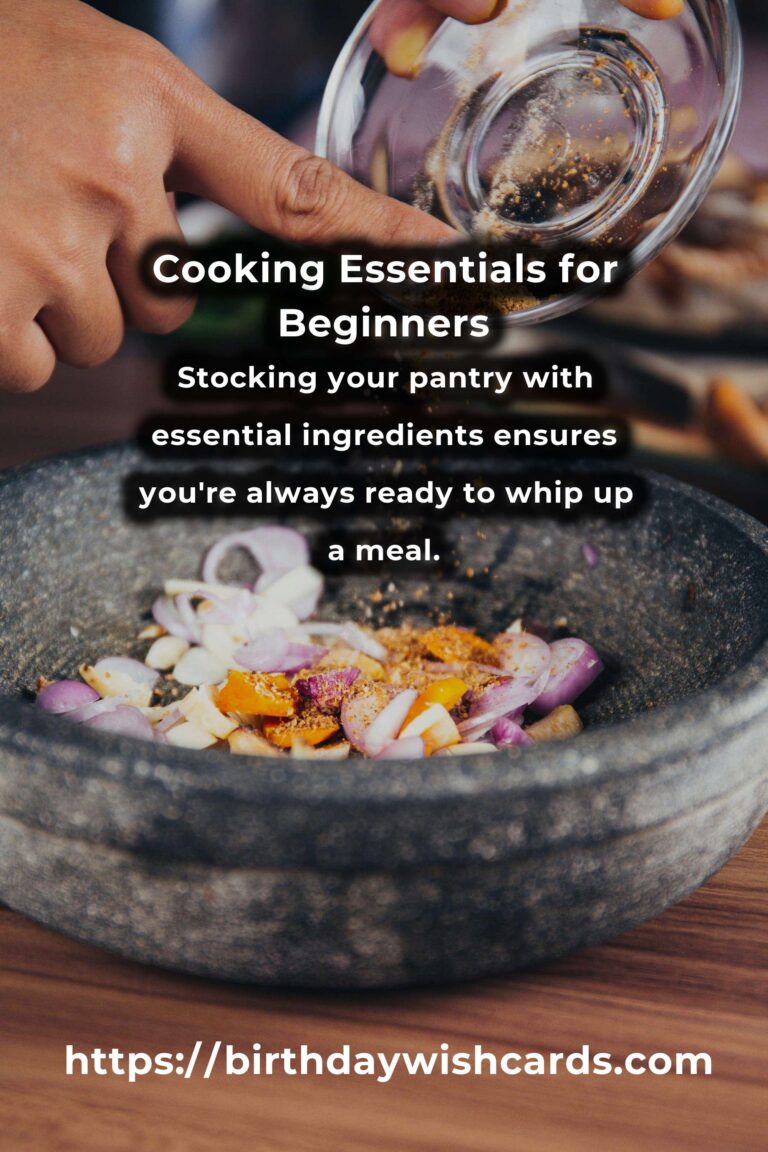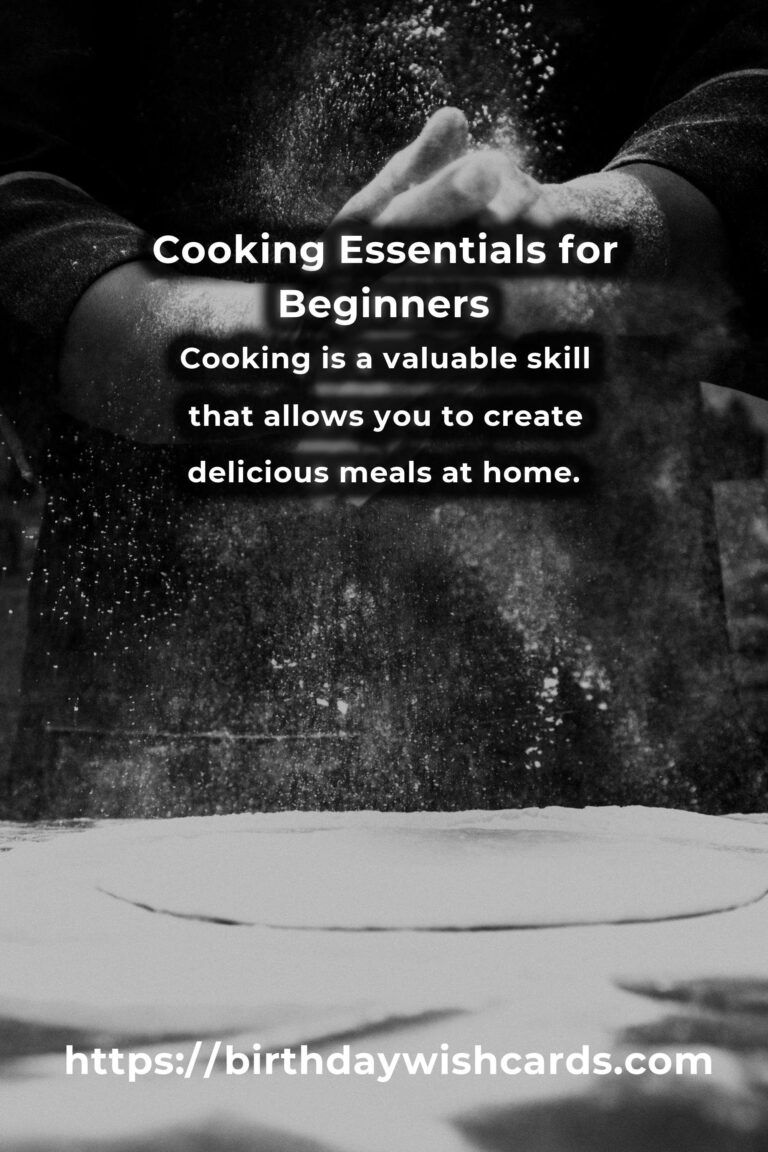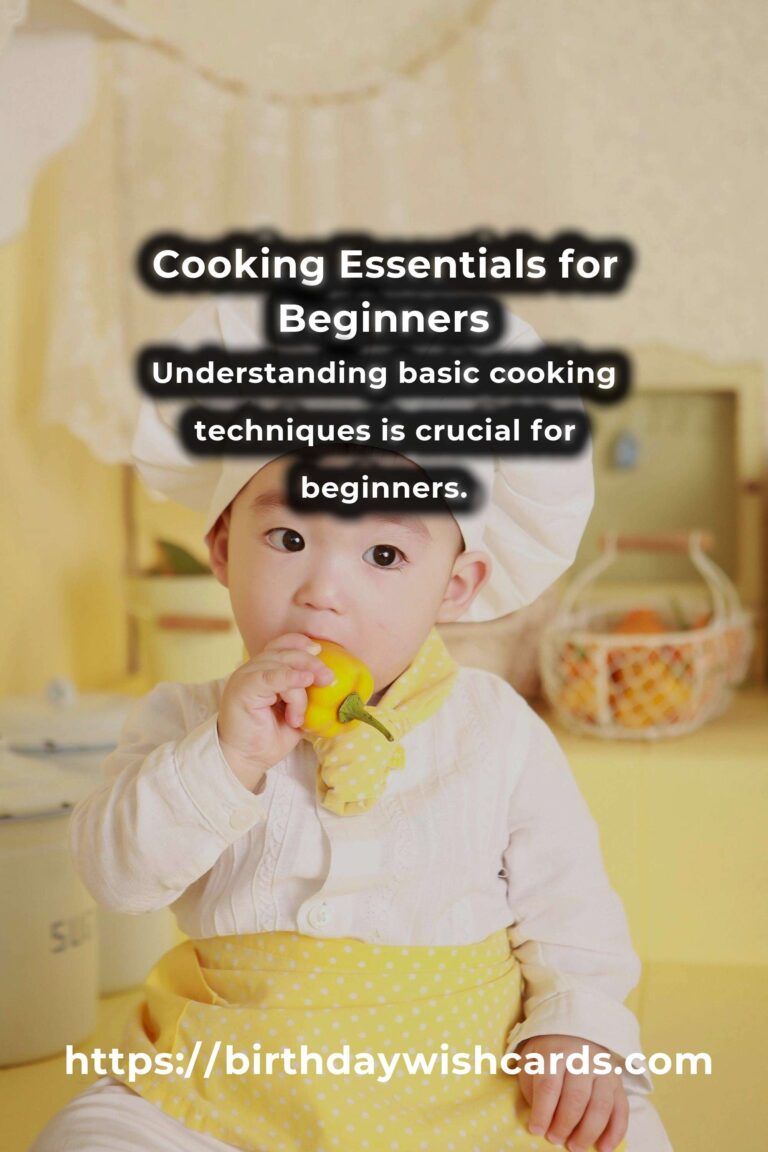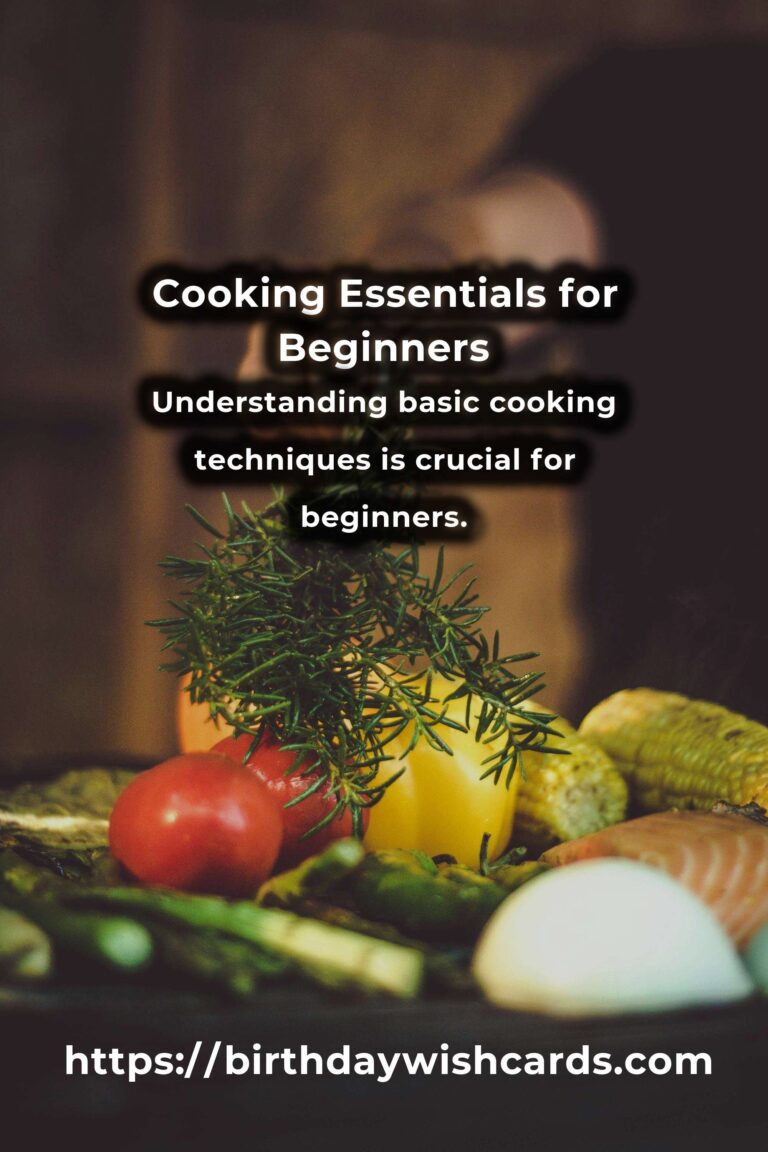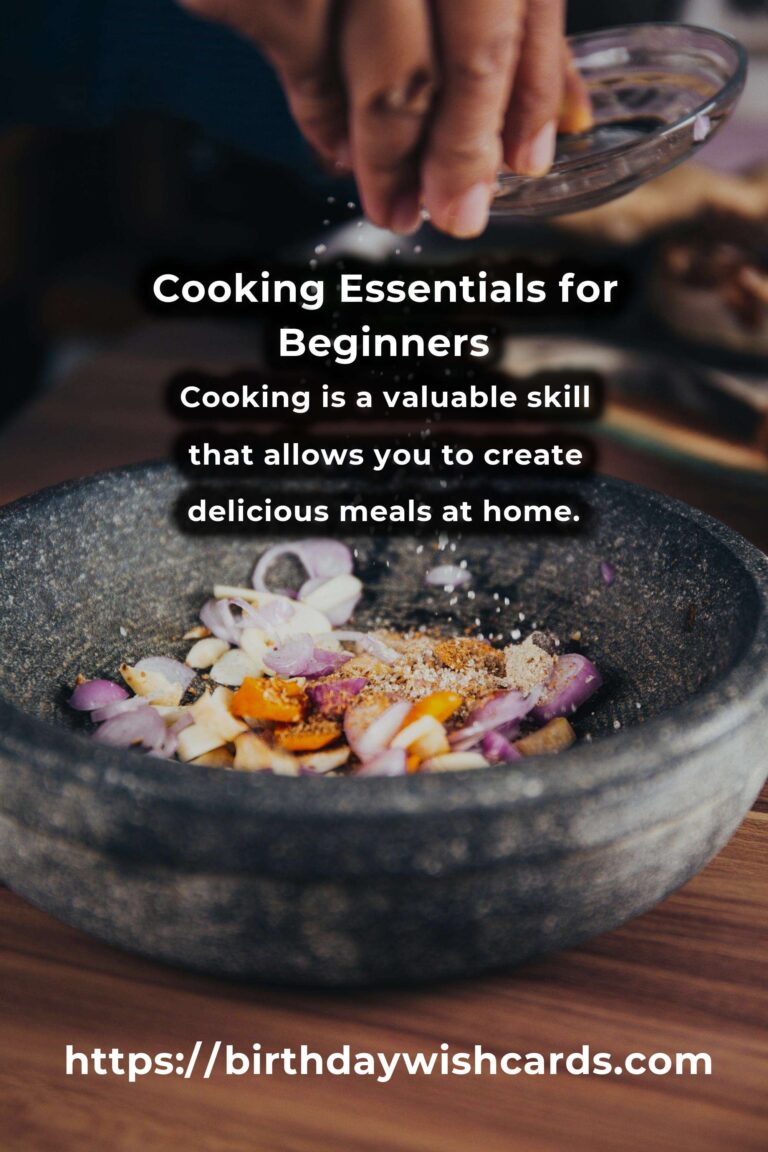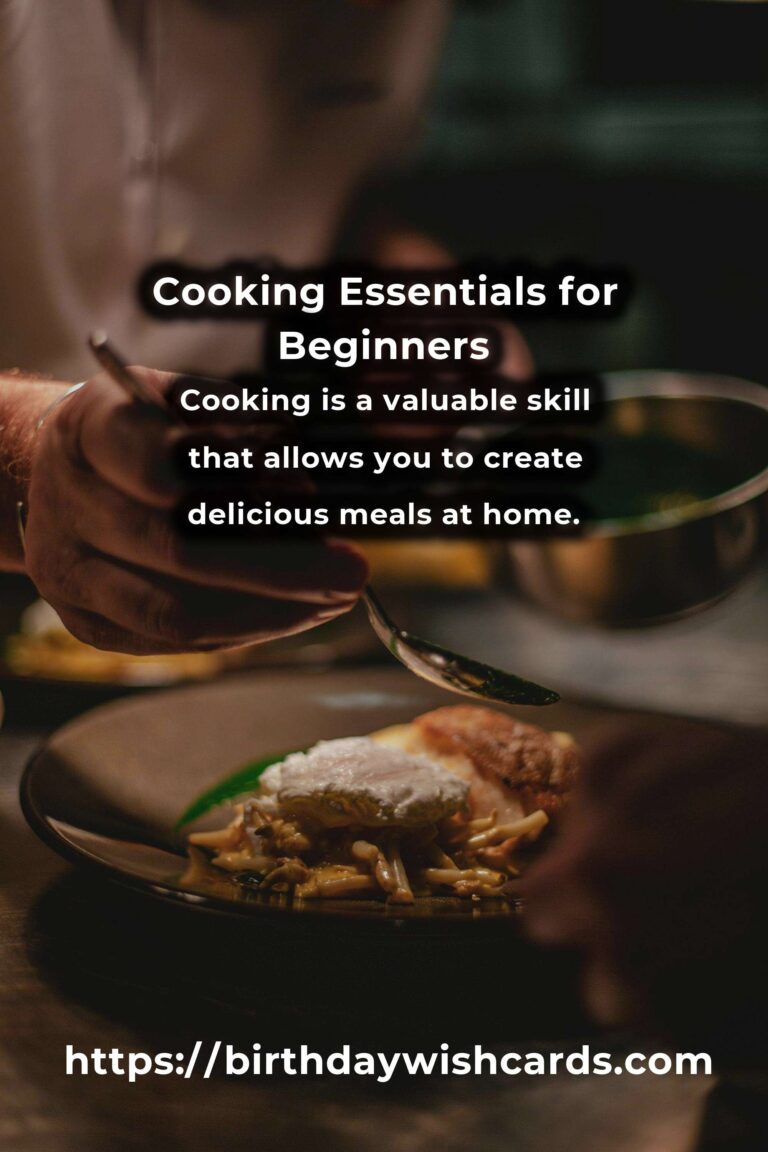
Cooking is a valuable skill that not only allows you to create delicious meals at home but also gives you control over your nutrition and budget. Whether you’re just starting your culinary journey or looking to refine your skills, understanding the basics is crucial.
Understanding Basic Cooking Techniques
Before diving into recipes, it’s important to familiarize yourself with some fundamental cooking techniques. These form the foundation of many dishes and will enhance your confidence in the kitchen.
Boiling and Simmering
Boiling is the process of cooking food in water at high temperatures. It’s commonly used for pasta, potatoes, and vegetables. Simmering, on the other hand, involves cooking food gently in water just below the boiling point, which is ideal for soups and stews.
Sauteing and Stir-Frying
Sauteing involves cooking food quickly in a small amount of oil or fat over medium-high heat. It’s perfect for vegetables and small pieces of meat. Stir-frying is similar but uses higher heat and constant stirring, making it ideal for Asian-inspired dishes.
Baking and Roasting
Baking refers to cooking food by surrounding it with hot air in an oven. It’s used for a variety of foods, from bread to desserts. Roasting is similar but typically involves higher temperatures and is often used for meats and vegetables.
Grilling
Grilling involves cooking food on a grill over direct heat. It’s a great method for steaks, burgers, and vegetables, imparting a distinct smoky flavor.
Crucial Kitchen Tools
Equipping your kitchen with the right tools is essential for efficient cooking. Here are some must-have items:
Chef’s Knife
A good-quality chef’s knife is indispensable. It’s versatile and can handle a variety of tasks, from chopping vegetables to cutting meat.
Cutting Board
Invest in a sturdy cutting board. Wooden boards are gentle on knives, while plastic ones are easy to sanitize.
Measuring Cups and Spoons
Accurate measurements are crucial for successful cooking. A set of measuring cups and spoons ensures you follow recipes precisely.
Mixing Bowls
Mixing bowls of various sizes are useful for preparing and combining ingredients.
Non-Stick Skillet
A non-stick skillet is perfect for cooking eggs, pancakes, and other delicate foods without sticking.
Stockpot
A stockpot is essential for making soups, stews, and large batches of pasta.
Basic Ingredients to Have on Hand
Stocking your pantry with essential ingredients ensures you’re always ready to whip up a meal. Here are some basics to consider:
Salt and Pepper
These are fundamental seasonings that enhance the flavor of almost any dish.
Olive Oil
Olive oil is a healthy fat used for cooking and dressing salads.
Spices and Herbs
Common spices like garlic powder, paprika, and oregano can elevate your dishes. Fresh or dried herbs are also great additions.
Rice and Pasta
These are versatile staples that serve as the foundation for many meals.
Canned Tomatoes
Canned tomatoes are ideal for making sauces and soups.
Flour and Sugar
These ingredients are essential for baking and thickening sauces.
Developing Cooking Skills
As you gain confidence in the kitchen, you’ll want to experiment and develop your own cooking style. Here are some tips:
Start Simple
Begin with simple recipes and gradually progress to more complex dishes.
Practice Consistently
The more you cook, the more you’ll improve. Set aside time each week to try new recipes.
Learn from Mistakes
Cooking mishaps are inevitable. Use them as learning opportunities to enhance your skills.
Experiment with Flavors
Don’t be afraid to try new ingredients and flavor combinations. This experimentation can lead to culinary discoveries.
Conclusion
Mastering the basics of cooking is a journey that requires patience and practice. By understanding fundamental techniques, equipping your kitchen with the right tools, and stocking up on essential ingredients, you’ll be well on your way to becoming a confident home cook.
Cooking is a valuable skill that allows you to create delicious meals at home. Understanding basic cooking techniques is crucial for beginners. Equipping your kitchen with the right tools is essential for efficient cooking. Stocking your pantry with essential ingredients ensures you’re always ready to whip up a meal. Mastering the basics of cooking is a journey that requires patience and practice.
#CookingBasics #BeginnerCooking #KitchenTips #HomeCooking #CookingSkills


